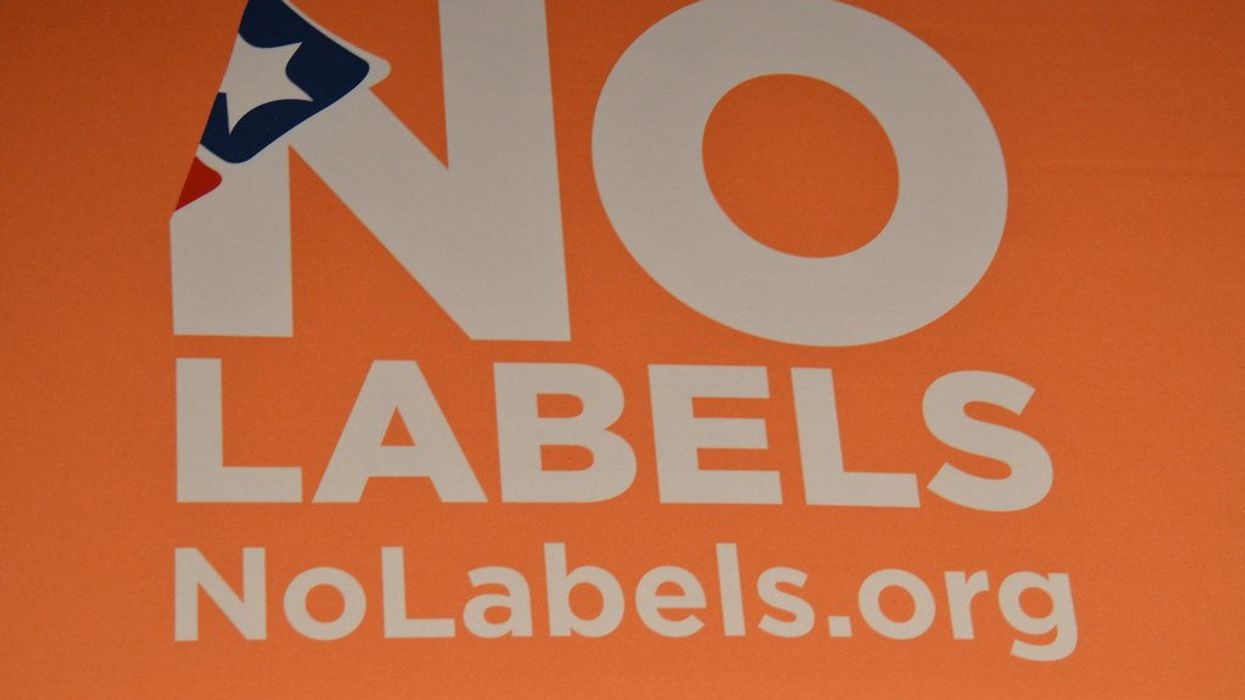Ernst is a volunteer and state leader at Veterans for All Voters.
Fear. I smell fear.
Over the past few months, the wider media enterprise has written innumerable pieces casting doubt on third parties competing in the 2024 election – not just third party viability, but their intentions and appropriateness in America's de facto duopoly. Indeed, there is much to be uncertain about, mostly because these are uncertain times. But to dismiss third parties and electoral reforms that may enable them out of fear of "spoiling" a true race is missing the larger point – America's system as a democratic republic is already spoiling itself.
More importantly, skeptics are not recognizing that in this crisis there is also an opportunity – a chance to transform from a “spoiling” system to one of better choices. But it won’t be easy. Simple change requires a fleeting impulse. Evolution requires an enduring stressor. But true transformation requires a choice. Those who dare to transform must choose to act with courage – and be ready for a little discomfort.
Yes, the current system is already "spoiled"
America faces a crisis because the duopoly simply cannot sustain our democracy. Trust in institutions is at an all-time low, and only 10 percent of Americans are satisfied with the state of national governance while over 60 percent of Americans strongly dislike the inevitable rematch between Donald Trump and Joe Biden. This isn't about one or two administrations. These are trends and neither Trump nor Biden is the problem – they are the symptom, the result of a flawed process.
Rest assured, the United States has navigated many crises before, including at least three of the constitutional variety. The first occurred when the Founders had to wrestle with the question, "What does it mean to be a nation?" They chose to discard the Articles of Confederation and start afresh, resulting in the Constitution. The second crisis involved addressing the question, "What does it mean to be a citizen?" That resulted in the Civil War and then the 13th, 14th, and 15th amendments. The third crisis spanned the middle of the 20th century, in response to unresolved questions asking, "For who, where and when should elections be?" The answers were codified in the 20th, 22nd, 23rd, 24th and 26th amendments. But glaringly missing is any answer to the question of “how?”
That brings us to today. The amended Constitution does not delve much into how our democratic processes should function – parties, primaries, ballot access, security and more. Answer these questions will be challenging as both sides implement measures completely unacceptable to the other. Change, we must.
So, why be afraid of change?
The answer is two-fold. First, opponents of change tend to align with either of the two major parties, and change will only lessen their ability to impose a false choice upon the electorate.
But more importantly, critics of third-party candidates and electoral reforms seem to favor the status quo because of the uncertainty they will introduce in November. Uncertainty is always scary, and many people choose the devil they know over the one they don't. But there is no realistic way to alter the status quo without discomfort and uncertainty, just as Abraham Lincoln discovered in 1860 with the early days of the Republican Party. Like then, the conditions of 2024's election cycle are prime for transformation.
How transformation could unfold
There are many ways transformation could ensue in the years ahead, some easier than others. Certainly pressures can continue to mount until the nation reaches a constitutional crisis from which it may not recover. This scenario might not be likely and the crisis might simply be manifest in states not conforming to norms, rulings and laws. A better alternative would be systemic reform that resolves the “how” questions.
Electoral reforms are being considered in nearly every state and territory this year, using the dysfunction and dismay of the 2024 race so far as the backdrop for driving necessary change. These reforms include open primaries, ranked-choice voting, independent redistricting commissions, term limits and dozens more innovations within the bucket of "how."
Democracy reform is complicated and it is easier for politicians and the media to blame third parties rather than address the dysfunction of the current two-party system.
Those who blame the third parties for being nothing more than spoilers are rejecting the democratic principles they supposedly champion.
If you are fearful of reform, ask yourself this: If transformation should not be driven from beyond the duopoly, then by who? If not in 2024, then when? If not by promising new choices, then how?
If you are unsure how to answer these questions, then consider joining any of the major national or state-level organizations dedicated to electoral reform. Ultimately, no change or transformation will be possible without citizens like you who choose to act with courage, despite the discomfort.




















